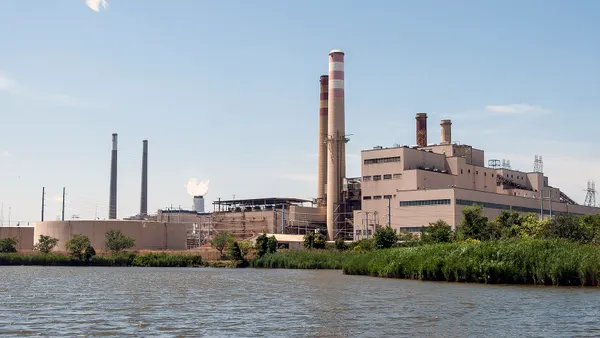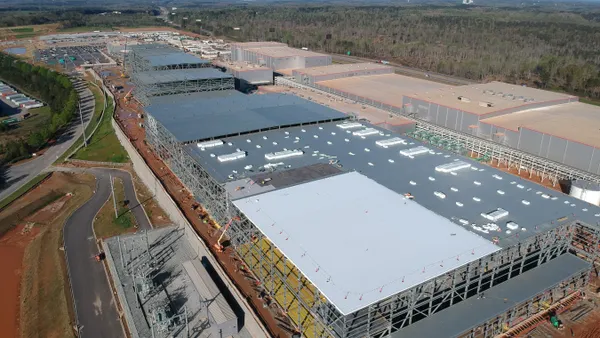Dive Brief:
- President Donald Trump on Monday signed a bill to streamline the regulatory processes needed to commercialize advanced nuclear reactors.
- The legislation would speed up the licensing process for advanced reactors, directing the Nuclear Regulatory Commission to modernize its licensing rules. These changes are meant to encourage the next generation of nuclear reactors.
- The nuclear research community continues to push Congress for larger investments into advanced nuclear power. Nuclear scientists asked for annual funding of new reactor concepts and for a new manufacturing program at the Senate Appropriations energy and water subcommittee hearing on Wednesday.
Dive Insight:
The United States has fallen behind on nuclear manufacturing, pushing developers to look overseas for reactor parts. Increased investment in the industry is viewed as an opportunity to rebuild nuclear manufacturing for safer, scalable advanced nuclear reactors.
The Department of Energy last fall announced plans to invest $115 million to develop the next generation of reactors, including projects to demonstrate the production of the fuel needed for several advanced reactors — high-assay low-enriched uranium.
Christine Bach, vice president at the defense contractor General Atomics, asked the Appropriations subcommittee for funding help "with a small number of new technology reactor concepts," for a total of about $10 million annually, growing to $30 million annually over the next five years. She noted General Atomics has started a budding program that receives small levels of funding from DOE. The $10-million appropriation would help determine whether new innovative technologies should "proceed to a truly advanced pilot," she said.
Senators also learned more about the Transformational Challenge Reactor (TCR) project at Oak Ridge National Laboratory, which aims to demonstrate the capability to 3D print an entire nuclear reactor. The project received $30 million in Congressional appropriations for the fiscal year of 2019, Subcommittee Chairman Lamar Alexander, R-Tenn., said.
TCR represents the potential to build a manufacturing program that would benefit "any new advanced manufacturing paradigm" by "using advanced computation and additive manufacturing to ensure that any advanced reactor concepts can be validated before it is actually manufactured," Thomas Zacharia, Oak Ridge's director, said during the Senate hearing.
The panelists took questions about the safety, price and nuclear waste disposal of advanced nuclear reactor processes, although many senators still issued concerns about understanding the demands of the nuclear physicists and the potential of advanced reactors.
Advanced nuclear reactors pose the opportunity for lower costs, increased safety due to self-shutdown mechanisms and minimizing the amount of nuclear fuel spent, Zacharia said. The TCR project would validate advanced reactor concepts and manufacture them, he added.
"I'm not willing to spend a single solitary dime until you're willing to send me something so I can understand what you're talking about. And this is taxpayer money we're spending and I don't have the slightest idea what you're talking about and this hasn't been helpful to me, I don't know what you're asking," Sen. John Kennedy, R-La., told the panelists.
The potential for lower nuclear fuel waste of advanced reactors is important given the stalled efforts to determine a permanent repository for nuclear waste. Alexander, who supports funding for using Yucca Mountain in Nevada as a repository, said he wants to resolve "the nuclear waste stalemate" this year. A House bill to advance with permanent storage at Yucca Mountain was deemed "dead on arrival" by former-Sen. Dean Heller, R-Nev., last summer.
"I expect President Trump will continue to request funding to restart the licensing process for Yucca Mountain, and I look forward to moving forward on all tracks at the same time," Alexander said.













